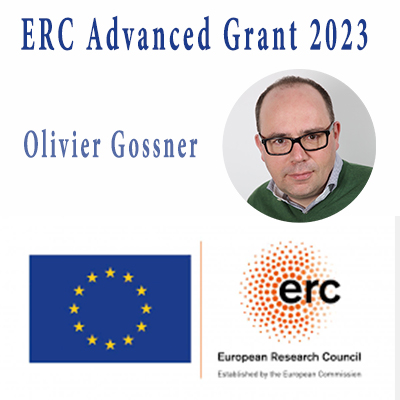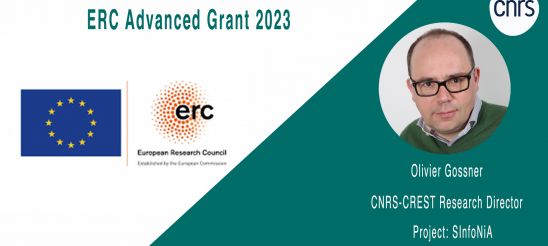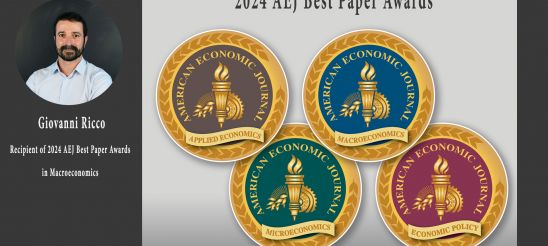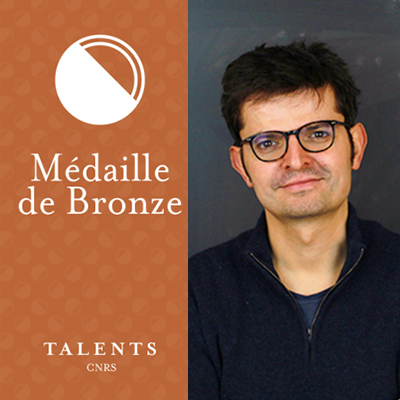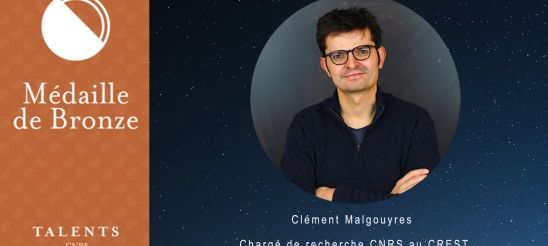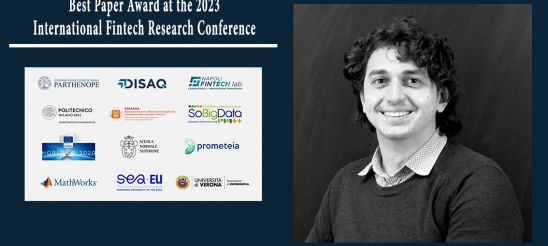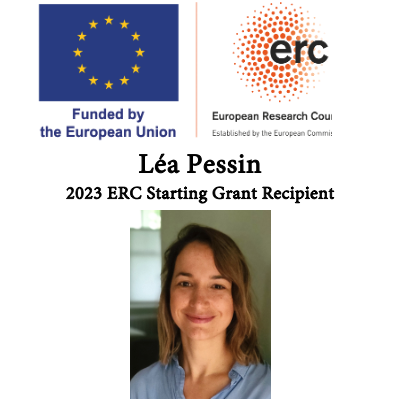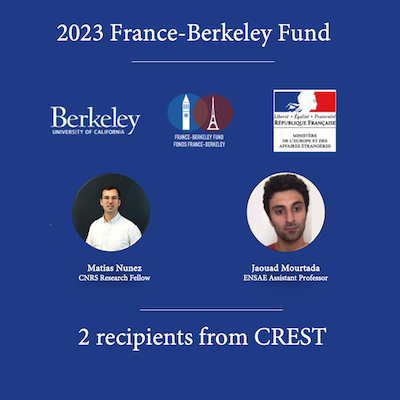Olivier Gossner, CNRS Senior Researcher, recipient of the 2023 ERC Advanced Grant
Olivier Gossner, recipient of the 2023 ERC Advanced Grant
Olivier Gossner, CNRS Senior Researcher, recipient of the 2023 ERC Advanced Grant
Giovanni Ricco, recipient of the 2024 AEJ Best Paper Awards in Macroeconomics
The American Economic Association announced the list of Award Reciptients for 2024.
Giovanni Ricco, Professor at Ecole polytechnique, received the annual American Economic Journal (AEJ) Best Paper Awards for his work with Silvia Miranda-Agrippino, Research Economist in the Monetary Policy Division at the Federal Reserve Bank of New York and a Research Affiliate in the Monetary Economics and Fluctuations (MEF) programme of the CEPR. The paper was published in 2021, in the American Economic Journal: Macroeconomics, while Giovanni Ricco was a Professor in the Department of Economics at University of Warwick.
The annual American Economic Journal (AEJ) Best Paper Awards highlight the best paper published in each of the American Economic Journals: Applied Economics, Economic Policy, Macroeconomics, and Microeconomics over the last three years. Nominations are provided by AEA members, and winners are selected by the journals’ Boards of Editors. Complimentary full-text articles are available at https://www.aeaweb.org/about-aea/honors-awards/aej-best-papers.
“The transmission of Monetary Policy Shocks” by Silvia Miranda-Agrippino and Giovanni Ricco – 13(3), (pp. 74-107) July 2021
Commonly used instruments for the identification of monetary policy disturbances are likely to combine the true policy shock with information about the state of the economy due to the information disclosed through the policy action. We show that this signaling effect of monetary policy can give rise to the empirical puzzles reported in the literature, and propose a new high-frequency instrument for monetary policy shocks that accounts for informational rigidities. We find that a monetary tightening is unequivocally contractionary, with deterioration of domestic demand, labor and credit market conditions as well as of asset prices and agents’ expectations.
More information on the article: The Transmission of Monetary Policy Shocks
Giovanni Ricco, recipient of the 2024 AEJ Best Paper Awards in Macroeconomics
The American Economic Association announced the list of Award Reciptients for 2024.
Giovanni Ricco, Professor at Ecole polytechnique, received the annual American Economic Journal (AEJ) Best Paper Awards for his work with Silvia Miranda-Agrippino, Research Economist in the Monetary Policy Division at the Federal Reserve Bank of New York and a Research Affiliate in the Monetary Economics and Fluctuations (MEF) programme of the CEPR. The paper was published in 2021, in the American Economic Journal: Macroeconomics, while Giovanni Ricco was a Professor in the Department of Economics at University of Warwick.
The annual American Economic Journal (AEJ) Best Paper Awards highlight the best paper published in each of the American Economic Journals: Applied Economics, Economic Policy, Macroeconomics, and Microeconomics over the last three years. Nominations are provided by AEA members, and winners are selected by the journals’ Boards of Editors. Complimentary full-text articles are available at https://www.aeaweb.org/about-aea/honors-awards/aej-best-papers.
“The transmission of Monetary Policy Shocks” by Silvia Miranda-Agrippino and Giovanni Ricco – 13(3), (pp. 74-107) July 2021
Commonly used instruments for the identification of monetary policy disturbances are likely to combine the true policy shock with information about the state of the economy due to the information disclosed through the policy action. We show that this signaling effect of monetary policy can give rise to the empirical puzzles reported in the literature, and propose a new high-frequency instrument for monetary policy shocks that accounts for informational rigidities. We find that a monetary tightening is unequivocally contractionary, with deterioration of domestic demand, labor and credit market conditions as well as of asset prices and agents’ expectations.
More information on the article: The Transmission of Monetary Policy Shocks
Clément Malgouyres, recipient of the CNRS Bronze Medal 2024
The CNRS Bronze Medal
The CNRS Bronze Medal is an award presented by the French National Center for Scientific Research (Centre national de la recherche scientifique or CNRS). It honors researchers for the originality, quality, and significance of their work, typically within the early years of their career. It represents a significant acknowledgment in the field of scientific research.
Clément Malgouyres, recipient of the 2024 CNRS Bronze Medal
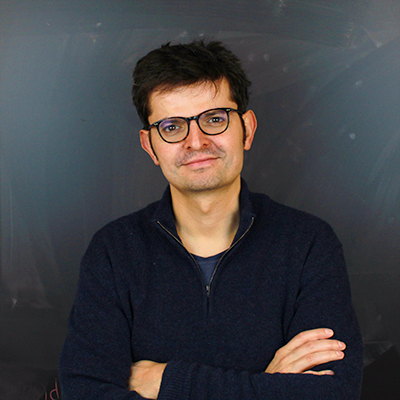
Clément Malgouyres is a research associate at CNRS and an economist at CREST, a member of the Polytechnic Institute of Paris. He is also a research affiliate at the Institute of Public Policy. He defended his thesis in 2016 at the European University Institute.
His work encompasses labor economics, public economics, and international economics. He explores the interactions between public policies and corporate behavior, with a particular focus on business and entrepreneur taxation, as well as the role of companies in labor market dynamics
In a recent article (Bergeaud et al., 2023), Clément and his co-authors investigate the effects of public research on companies’ R&D efforts, comparing the relative effectiveness of various public innovation support policies. Other recent works focus on measuring the progressivity of the tax system, improving the measurement of income and business assets (Bach et al., 2023). Finally, he examines the effectiveness of incentive policies for greening the fleet of passenger vehicles through a bonus/malus system.
Check the CNRS interview of Clement Malgouyres: https://www.inshs.cnrs.fr/fr/personne/clement-malgouyres
Clément Malgouyres, recipient of the CNRS Bronze Medal 2024
The CNRS Bronze Medal
The CNRS Bronze Medal is an award presented by the French National Center for Scientific Research (Centre national de la recherche scientifique or CNRS). It honors researchers for the originality, quality, and significance of their work, typically within the early years of their career. It represents a significant acknowledgment in the field of scientific research.
Clément Malgouyres, recipient of the 2024 CNRS Bronze Medal

Clément Malgouyres is a research associate at CNRS and an economist at CREST, a member of the Polytechnic Institute of Paris. He is also a research affiliate at the Institute of Public Policy. He defended his thesis in 2016 at the European University Institute.
His work encompasses labor economics, public economics, and international economics. He explores the interactions between public policies and corporate behavior, with a particular focus on business and entrepreneur taxation, as well as the role of companies in labor market dynamics
In a recent article (Bergeaud et al., 2023), Clément and his co-authors investigate the effects of public research on companies’ R&D efforts, comparing the relative effectiveness of various public innovation support policies. Other recent works focus on measuring the progressivity of the tax system, improving the measurement of income and business assets (Bach et al., 2023). Finally, he examines the effectiveness of incentive policies for greening the fleet of passenger vehicles through a bonus/malus system.
Check the CNRS interview of Clement Malgouyres: https://www.inshs.cnrs.fr/fr/personne/clement-malgouyres
Michele Fabi Receives Best Paper Award at the 2023 International Fintech Research Conference
Michele Fabi, a postdoctoral fellow at CREST-École polytechnique has recently received the Award for the best paper presented at the International Fintech Research Conference, held at Parthenope University of Naples on 2-3 November 2023.
Michele Fabi
Michele Fabi is currently a post-doctoral researcher at CREST-Ecole polytechnique, serving as a member of the Blockchain and Platform Chair—a research initiative dedicated to blockchains and associated technologies.
Broadly speaking, Michele’s research fields are Financial Economics and Microeconomics, with a focus on topics such as fintech, platforms, decentralized and startup finance, blockchain, and the digitalization of money and markets. He is actively involved into a promoting research on these subjects by taking part in the organization of academic activities such as the BlockSem seminar and the Blockchain@X-OMI Workshop on Blockchain and Decentralized Finance.
Finally, Michele obtained his PhD in 2021 from the doctoral program IDEA-UAB (Universitat Autonoma de Barcelona), working with Matthew Ellman as his advisor.
In 2023-2024, Michele is one of CREST’s International Job Market candidate.
2nd International Fintech Research Conference
The International Fintech Research Conference is set to be a vibrant hub for researchers, encouraging cross-disciplinary discussions and collaborations in the expansive field of Fintech. Covering diverse areas, the conference welcomes contributions in theoretical analysis, machine learning applications, cryptocurrencies, cybersecurity, neural networks, smart contracts, and more.
With a focus on cutting-edge topics such as blockchain technologies, big data analysis, and behavioral finance, the event promises to be a dynamic platform for researchers to share insights, engage in discussions, and shape the future of finance and technology.
During this conference, the Organizing Committee establishes a prize for the best paper presented which was awarded, this year, to Michele Fabi for his paper “Blockchain Design with Transmission Delays”.
More information on the Conference: https://www.disaq.uniparthenope.it/fintechlab/international-fintech-research-conference/
Blockchain Design with Transmission Delays
The article investigates the economics of blockchain design. Unlike previous studies, this research introduces a strategic variable for miners: the ability to choose the size of transaction blocks. This departure from the assumption of maximum block capacity provides insights applicable to modern blockchains like Ethereum.
The study makes two key contributions. Firstly, it establishes testable predictions on block size and justifies transaction fees from the perspective of consensus layer incentives. This differs from earlier approaches that focused on application layer incentives. Secondly, the research addresses the limitations of a partial-equilibrium approach found in previous market microstructure papers. By endogenizing token inflation, the model can provide insights into the optimal balance between transaction fees and token inflation.
The paper builds upon prior works in the economics literature on blockchain and cryptocurrencies, pioneered by Chiu and Koeppl (2019) and Pagnotta (2022) among others, incorporating elements of the new monetarist matching models like Choi and Rocheteau (2020). It is also deeply inspired by the computer science literature on blockchain consensus and distributed algorithms (e.g. Pass and Shi, 2017; Ren, 2019), which lays out the methodological and conceptual foundations for the study of miner incentives.
In conclusion, the article sheds light on the economic challenges of blockchain designs, providing valuable insights for both researchers and practitioners in the blockchain space.
To read the full paper: https://drive.google.com/file/d/1VWGl65Mbg5iCSVNWnW3IMZZ1IL4oJuEU/view
Lea Pessin Receives ERC Grant
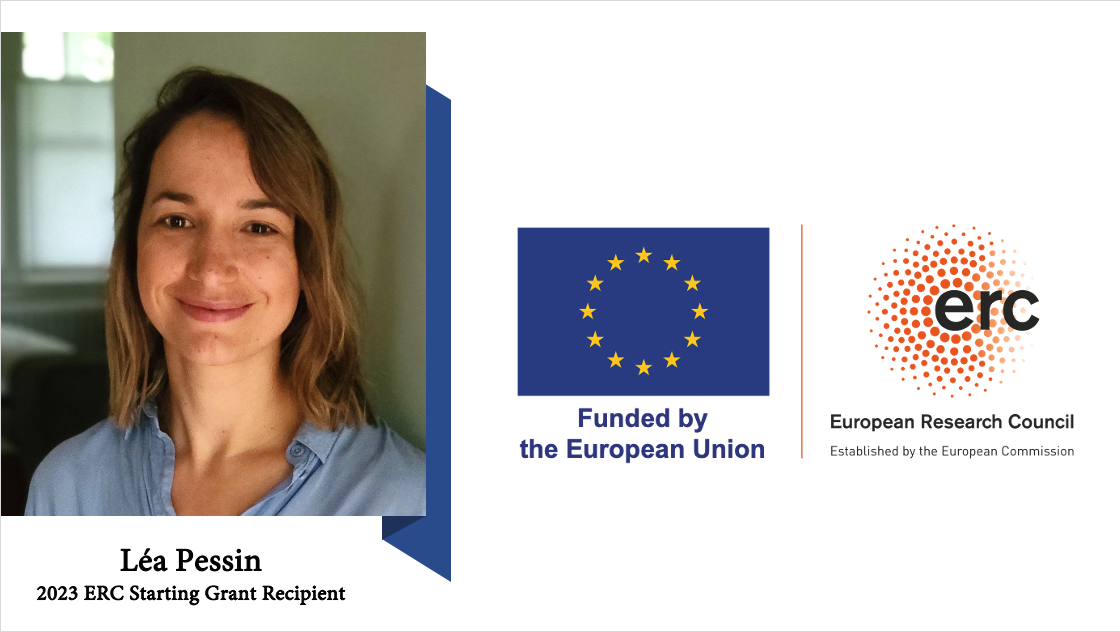
Léa Pessin is an assistant professor of Sociology and Demography. She recently joined CREST in the sociology team.
Léa holds a PhD in Sociology and Demography from the Pompeu Fabra University obtained in 2016. She also completed an NICHD postdoctoral fellow at the Population Research Institute and spent the last year of her Ph.D. as a visiting pre-doctoral scholar at the Maryland Population Research Center. She was a 2018 Work and Family Researchers Network Early Career Fellow.
Léa previously worked in the department of Sociology and Criminology and was a faculty associate at the Population Research Institute at the Pennsylvania State University.
Her research agenda focuses on the unequal consequences of the gender revolution on women’s work and family outcomes across class, race, and contexts. She applies quantitative methods to cross-national and longitudinal data to explore variation across countries and time. Her work has been published in Demography, Social Forces, The Journal of Marriage and Family, Demographic Research, The European Sociological Review, and The Journal of Personal and Social Relationships.
As a recognition to her exceptional contributions to sociology, Lea Pessin has recently been awarded an ERC grant, reaffirming her dedication to advancing the boundaries of knowledge in her field.
Léa Pessin was awarded the ERC Starting Grant to work on Social Inequalities in Work-Family Strategies Within and Across 24 Industrialized Countries (WeEqualize).
“WeEqualize” is a research project that aims to understand the complex dynamics of the gender revolution’s impact on work-family patterns in different-sex couples across 24 countries from the 1960s to the present. It acknowledges that despite predictions of linear progress toward gender equality in work and home responsabilities, various structural and cultural factors have stalled this convergence in industrialized countries. The project seeks to characterize and quantify social inequalities in work-family strategies, identify typologies of these strategies, and examine their prevalence across education levels and countries. It also explores the role of contextual factors, changing demographics, and the influence of gender beliefs and labor market constraints on couples’ choices. WeEqualize combines computational methods and survey-based experimental data to challenge and reshape our understanding of gender equality within families.
2023 France-Berkeley Fund: 2 recipients from the CREST
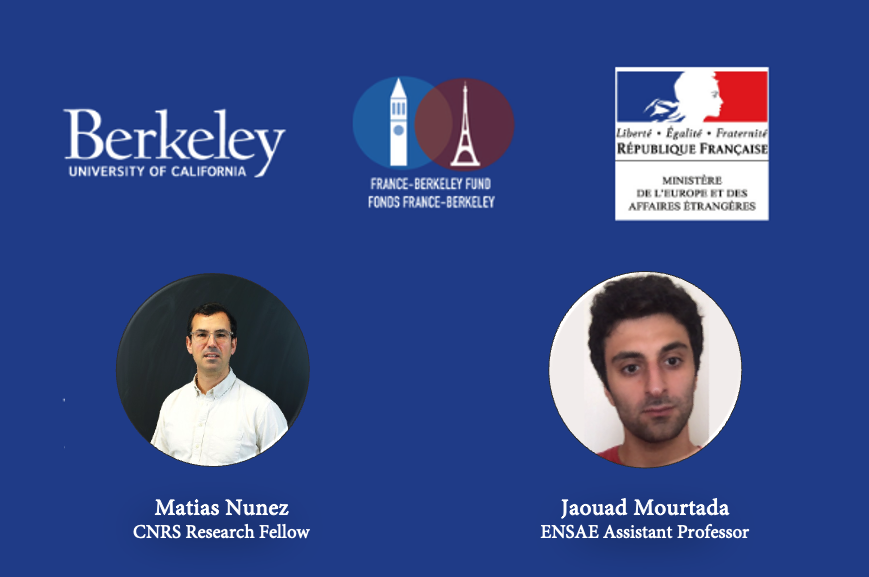
The France-Berkeley Fund
Established in 1993 as a partnership with the French Ministry of Foreign Affairs, the France-Berkeley Fund (FBF) promotes and supports scholarly exchange in all disciplines between faculty and research scientists at the University of California and their counterparts in France.
Through its annual grant competition, the FBF provides seed money for innovative, bi-national collaborations. The Fund’s core mission is to advance research of the highest caliber, to foster interdisciplinary inquiry, to encourage new partnerships, and to promote lasting institutional and intellectual cooperation between France and the United States.
2023-2024 Call: 2 CREST recipients
For the 2023-2024 call, 2 projects have been submitted and are getting funded:
• Decentralizing divorces
A project developed by Matias Nunez (CREST, CNRS Research fellow) and his counterpart Federico Echenique, Professor of Economics and Social Sciences at UC Berkeley.
Abstract:
This project focuses on the development of practical applications of mechanism design, a branch of economics concerned with developing well-functioning institutions that ensure efficient and fair outcomes. In particular, we will focus on legal settings where two persons need to reach an agreement while their preferences are misaligned. Examples are dissolution of partnerships, allocation of rights and duties among conflicting agents, and divorces. While a judge, legal experts and lengthy bargaining procedures are often needed in practice, we plan to develop economic tools to appraise reasonable compromises, reducing both cost and time.
• Towards Local, Distribution-Free and Efficient Guarantees in Aggregation and Statistical Learning
A project developed by Jaouad Mourtada (CREST, ENSAE Paris) and his counterpart Nikita Zhivotovskiy, Assistant Professor in Statistics at UC Berkeley.
Description:
Statistical learning theory is dedicated to the analysis of procedures for learning based on data. The general aim is to understand what guarantees on the prediction accuracy can be obtained, under which conditions and by which procedures. It can inform the design of sound and robust methods, that can withstand corruption in the data or departure from an idealized posited model, without sacrificing accuracy or efficiency in more favorable situations. In particular, the problem of aggregation can be formulated as follows: given a class of predictors and a sample, form a new predictor that is guaranteed to have an accuracy approaching that of the best predictor within the class, up to an error that should be as small as possible.
This problem can be cast in several settings and has been investigated through various angles in Statistics and Computer Science. While the topic is classical, it has seen a renewed interest through (for instance) the recent direction of robust statistical learning, which raises the question of the most general conditions under which a good accuracy can be achieved. Despite important progress, several important and basic questions have remained unanswered in the literature, which we aim to study.
2023 France-Berkeley Fund: 2 CREST recipients

The France-Berkeley Fund
Established in 1993 as a partnership with the French Ministry of Foreign Affairs, the France-Berkeley Fund (FBF) promotes and supports scholarly exchange in all disciplines between faculty and research scientists at the University of California and their counterparts in France.
Through its annual grant competition, the FBF provides seed money for innovative, bi-national collaborations. The Fund’s core mission is to advance research of the highest caliber, to foster interdisciplinary inquiry, to encourage new partnerships, and to promote lasting institutional and intellectual cooperation between France and the United States.
2023-2024 Call: 2 CREST recipients
For the 2023-2024 call, 2 projects have been submitted and are getting funded:
• Decentralizing divorces
A project developed by Matias Nunez (CREST, CNRS Research fellow) and his counterpart Federico Echenique, Professor of Economics and Social Sciences at UC Berkeley.
Abstract:
This project focuses on the development of practical applications of mechanism design, a branch of economics concerned with developing well-functioning institutions that ensure efficient and fair outcomes. In particular, we will focus on legal settings where two persons need to reach an agreement while their preferences are misaligned. Examples are dissolution of partnerships, allocation of rights and duties among conflicting agents, and divorces. While a judge, legal experts and lengthy bargaining procedures are often needed in practice, we plan to develop economic tools to appraise reasonable compromises, reducing both cost and time.
• Towards Local, Distribution-Free and Efficient Guarantees in Aggregation and Statistical Learning
A project developed by Jaouad Mourtada (CREST, ENSAE Paris) and his counterpart Nikita Zhivotovskiy, Assistant Professor in Statistics at UC Berkeley.
Description:
Statistical learning theory is dedicated to the analysis of procedures for learning based on data. The general aim is to understand what guarantees on the prediction accuracy can be obtained, under which conditions and by which procedures. It can inform the design of sound and robust methods, that can withstand corruption in the data or departure from an idealized posited model, without sacrificing accuracy or efficiency in more favorable situations. In particular, the problem of aggregation can be formulated as follows: given a class of predictors and a sample, form a new predictor that is guaranteed to have an accuracy approaching that of the best predictor within the class, up to an error that should be as small as possible.
This problem can be cast in several settings and has been investigated through various angles in Statistics and Computer Science. While the topic is classical, it has seen a renewed interest through (for instance) the recent direction of robust statistical learning, which raises the question of the most general conditions under which a good accuracy can be achieved. Despite important progress, several important and basic questions have remained unanswered in the literature, which we aim to study.

